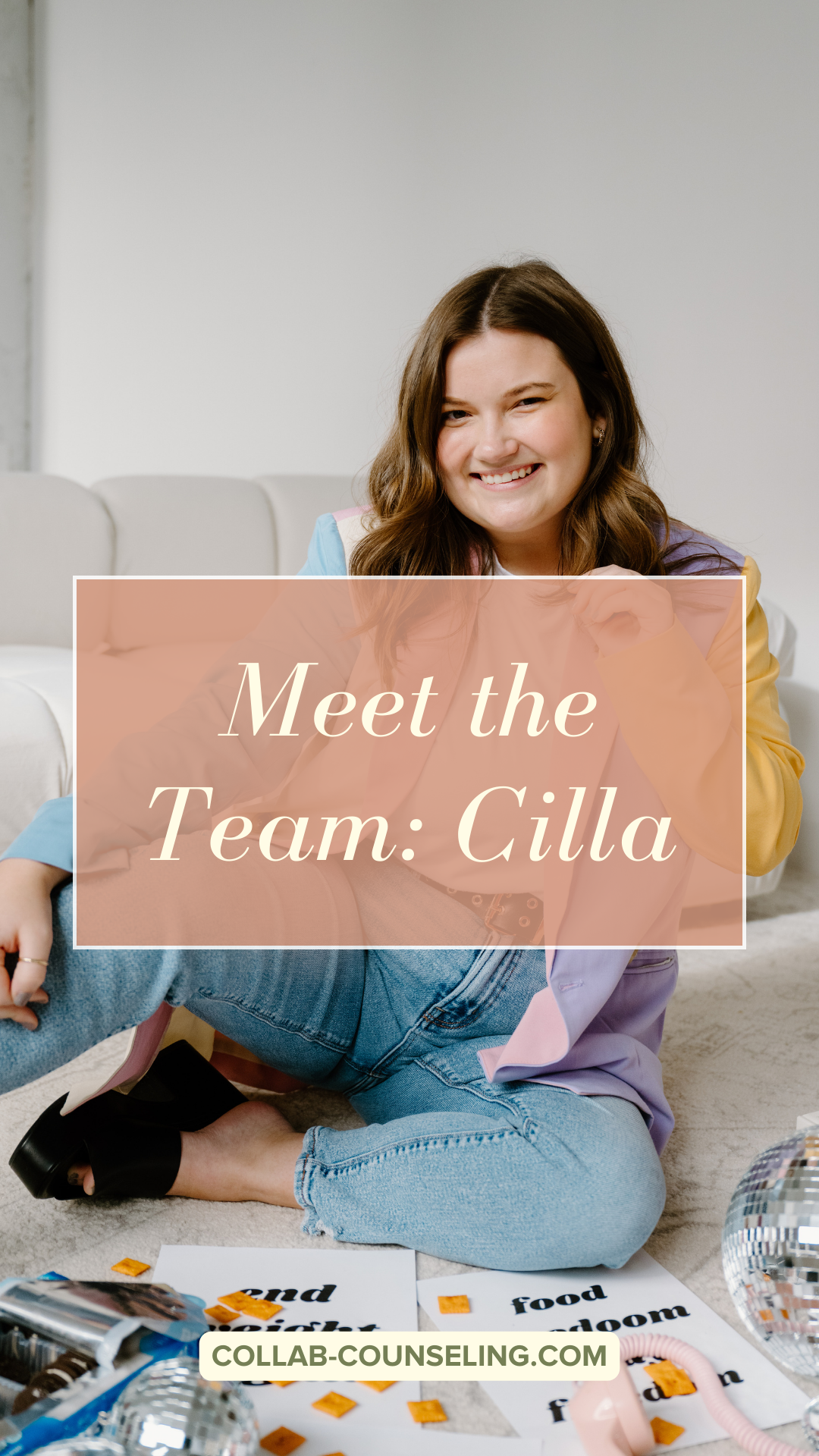Meet the Team: Cilla Moore - Recovery Coach
We are so excited to bring you a new blog segment, Meet the Team! This is a fun opportunity to get to know our clinicians outside the office! Today, we are hearing from one of our Recovery Coaches, Priscilla (Cilla) Moore! Take it away, Cilla!
What is your ideal/favorite morning routine?
My ideal morning starts with no alarm—just waking up naturally around 9 AM. My fiancé, Luna, and I take a slow morning walk to a trail in our neighborhood, where the birds are calling for each other, the temperature is just right, and my phone is nowhere in sight (probably thrown in a ditch… metaphorically of course). Once we’re back, I go straight to my retro pink skincare fridge because there are only a few things I love more than cold moisturizer. If you know, you know. And because this is my ideal morning, I am definitely not cooking—I’m ordering my go-to breakfast from The Uptown Cafe in Noblesville: their breakfast burrito and homemade OJ. The morning wraps up with me on the couch, watching reruns of Ridiculousness.
If you had to eat one meal for the rest of your life, what would it be?
If I had to eat one meal for the rest of my life, it would hands down be a bacon, egg, and tomato sandwich—lightly toasted, with a very thin layer of mayo—paired with Lays baked BBQ chips and mixed fruit. Why? Because this is my current food hyperfixation. #adhder
What’s your go-to fun fact about yourself?
My childhood home was on the Appalachian Trail in Hot Springs, NC-- the first town where hikers can stop for a warm meal and stock up on gear! Hiker season is a big deal there, and growing up, I met so many thru-hikers and heard their stories that inspired me to one day want to go on my own thru-hike adventure from GA to ME. It's a huge part of why I love adventure and community so much.
If you could give your younger self one piece of advice, what would it be?
Never stop creating. As a kid, I lived for creativity. My Garfield coloring book? Fully filled in—front to back. I experimented with every coloring technique, had way too many scrapbooks to count, and even though I wasn’t the best at “art,” I was constantly making things. Then middle school happened, and I stopped because I didn’t think I was as talented as others. It took over a decade (and a global pandemic) for me to start creating again, and I truly wish I had never stopped.
If your life had a theme song, what would it be?
As a lifelong Swiftie, it feels almost rebellious not to pick a Taylor song here—but Noah Kahan stole my heart in 2017, and we’re still going strong. You’re Gonna Go Far is my anthem because it reminds me of my decision to leave my hometown and move to Indy.
What is your practice style, including any specific approaches?
In my work as a recovery coach, I take a strength-based approach—meaning I’m always celebrating the teeny-tiny wins that an ED tries to gloss over. I specialize in body image and use principles from Body Image with Bri’s body grief model. I’ve had the honor of working alongside Bri not just as a colleague but as someone who deeply values her compassion and unapologetic truth.
How did you decide to become a recovery coach?
When I first heard about recovery coaching, I remember thinking, “Wow, I would have loved this option when I was recovering from my ED.” There’s something so powerful about working with someone who gets it. No need to translate experiences—just real, compassionate, empathetic support. And that? That makes all the difference.
What can clients expect when they do recovery coaching with you?
When you work with me as your recovery coach, expect the occasional F-bomb, unwavering support, and a judgment-free space where I meet you exactly where you’re at. I know firsthand what it feels like to feel like you’re “missing the mark” in the fight against ED—and the heavy shame that comes with it. You’re not alone in this, ever.
What is your superpower(s) as a recovery coach?
If I had a superpower in recovery coaching, it would be unwavering compassion and empathy. My clients never have to prove how hard they’re fighting their ED—I already know they are. In my practice, we focus on the wins (yes, even the tiniest ones, as I mentioned above) and how we can use those strengths to navigate the challenges ahead.
What advice would you give to someone considering recovery coaching?
My message to anyone considering recovery coaching—or recovery in general—is this: You only die once, but you get to live every single day. Imagine waking up and simply being—your full, unapologetic self. You’ll never know what that freedom feels like until you take the first step.
Moving Forward
There you have it! Thanks for sharing a bit of yourself with us, Cilla! If you or someone you know is looking for recovery coaching or other eating disorder support, reach out to the CCN Team today!


